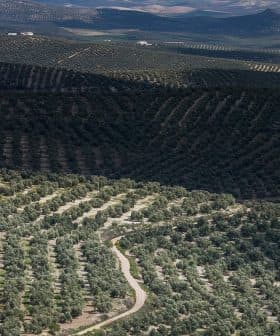Spain's Farmers Welcome Low Harvest Forecasts
An official for one of Spain’s main agricultural unions argues that steadily rising global consumption paired with a decrease in production may lead to more demand for Spanish olive oil and cause prices to rise.
Spain’s UPA predicts that the global decrease in olive oil production for the 2020/21 crop year will benefit Spanish producers, with an estimated production of 1.4 to 1.5 million tons. Despite initial expectations of a larger harvest, poor weather conditions have led to a decrease in olive production estimates in Spain, but the declining global production could help the struggling olive oil sector in the country by creating more space in the export market and potentially raising prices.
Spain’s Union of Small Farmers and Ranchers (UPA) has said that the estimated decrease in global olive oil production in the 2020/21 crop year could be a good thing for Spanish producers.
The agricultural association estimates that Spain will produce between 1.4 and 1.5 million tons of olive oil in 2020/21, a slight improvement from last year’s total of 1.25 million tons.
See Also:2020 Harvest UpdatesCristóbal Cano, the head of olive oil at UPA, said that the olive harvest was initially expected to be larger, but poor weather in recent months has dried up these prospects.
“In our country, after a very dry autumn and winter, the spring rains gave the production sector a break,” he said. “However, the development of the summer has been very negative, with heat waves that are reducing the olive production estimates day-by-day.”
See Also:Industry Data DashboardIn spite of many producers preparing for less of a rebound than previously expected, Cano believes that declining global production may actually have a positive impact on the country’s struggling olive oil sector.
The United States Department of Agriculture (USDA) has estimated that global olive oil production will reach 3.03 million tons in the 2020/21 crop year, marking a third consecutive year of decline.
Among the countries expected to take the biggest hits are Turkey and Tunisia, both of which are coming off near-record harvests and combine for more than one-quarter of global olive oil exports.
Along with declining production, the USDA also predicts that global olive oil consumption will continue to grow between two and four percent. This has led UPA to estimate that Spain’s olive oil stocks will fall by 20 percent, finishing the year at 400,000 tons.
Cano argues that this combination of factors has the potential to benefit Spanish producers. Lower production levels in Turkey and Tunisia mean more space in the export market for Spanish oils.
Additionally, the combination of falling olive oil stocks and steadily rising consumption will put a dent in the global glut of olive oil and, Cano hopes, cause prices to rise.
“It only remains to be seen if this situation of dominance of our oils in world production will take place with a fair distribution of the value of the product along the chain, or if again, the production sector suffers ruinous prices,” Cano said.









